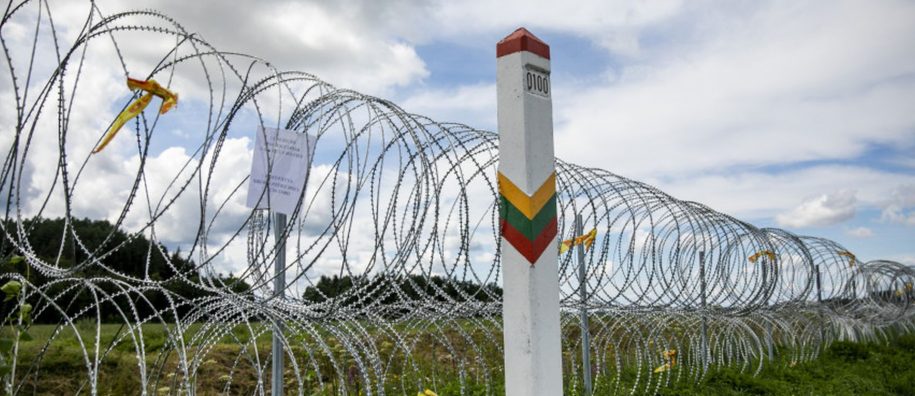
This week, Mykolas Romeris University (MRU), acting on behalf of an international consortium, signed an agreement with the European Border and Coast Guard Agency Frontex, to implement the European Joint Master’s Programme in Strategic Border Management. This innovative joint study programme will be carried out in cooperation with the Netherlands Defence Academy, the University of Salamanca, the Rezekne Academy of Technologies and the Estonian Academy of Security Sciences. Upon successful completion, students will be awarded a joint degree diploma.
The aim is to train up to one hundred mid- and top-level border guards from each Member state (EU) and Schengen associated country. Graduates will be prepared to play an active role in shaping the European border protection community and to face the various challenges of the future.
According to assoc. prof. dr. Mantas Bileišis, Dean of the MRU Academy of Public Security, this programme is essential for addressing the evolving challenges at the borders of the European Union.
"The Borders of the European Union face a wide range of constantly evolving challenges, from illegal migration to threats to national and international security. Therefore, the heads of national border guard service must be able quickly and efficiently address complex situations. This European Joint Master’s Programme in Strategic Border Management, implemented in collaboration with international partners, offers an exceptional opportunity to delve into relevant issues, while analysing new strategies, modern technologies and innovative solutions essential for effective border protection," says the Dean.
Assoc. prof. dr. Inga Juknytė-Petreikienė, head of the international project, emphasizes: "This programme is distinguished by a unique model of mobility of students and teachers, programme management and quality assurance, which is co-funded by the European Border and Coast Guard Agency Frontex. Academics and border guard experts from various European countries, such as Ireland, Belgium, Italy, Cyprus, Croatia, Germany, Poland, Austria and Portugal, contribute to its implementation. This cooperation between experts from different fields and countries creates a rich environment for higher education and innovation, where students and professors share international experiences, build important ties and strengthen cooperation across the European border guard system. Such a common approach is essential for developing harmonised practices and strategies needed to ensure the effective protection of our external borders."
The first iteration of students, planned to admit up to 33 participants, will begin their studies in March 2025. The selection is currently being carried out by Frontex.
This master's programme is a strategic step towards a strong, unified and effective system for the protection of Europe's external borders, capable of overcoming both current and future challenges.